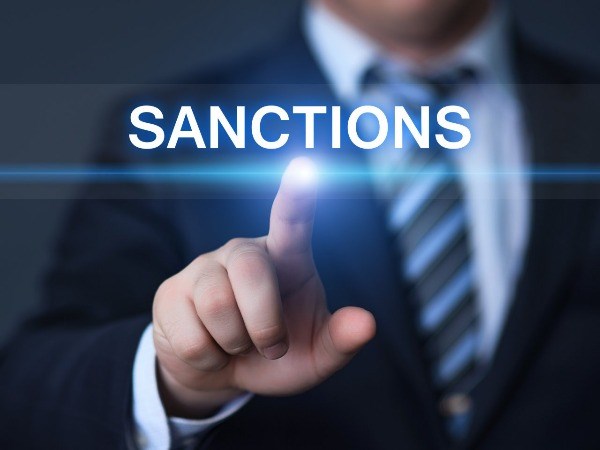U.S. and EU slam sanctions on Russia over Navalny’s prosecution
The U.S. and the European Union, after almost a month and a half of deliberations, decided on retaliatory measures in connection with the poising of the Russian opposition politician, Alexei Navalny. Navalny was poisoned in the summer with the Novichok nerve agent and was sentenced to 3 year in penal colony after returning to Russia from Germany.
Almost every top official of the Russian security agencies came under personal sanctions with freezing of assets and visa bans.
The head of the Russian Investigative Committee of the Russian Federation Alexander Bastrykin (already under British sanctions in connection with Navalny’s poisoning), the head of the Federal Penitentiary Service, Alexander Kalashnikov, the commander of the Russian National Guard, Viktor Goldov, and the Prosecutor General, Igor Krasnov, were added to the European Union’s "black list”.
These individuals, as the EU Council's decision says, are "responsible for serious human rights violations, including arbitrary arrests and detentions, as well as widespread and systematic repression of freedom of peaceful assembly and of association, and freedom of opinion and expression in Russia”.
Bastrykin, Kalashnikov and Krasnov have also been placed on the U.S. sanctions list next to drug lords and third world dictators.
In addition, the ban on obtaining U.S. visas and freezing of assets in the U.S. were imposed on the head of the Russian presidential administration, Sergey Kirienko, the Head of the Office of the Russian President on Internal Policy, Andrei Yarin, and two deputy defense ministers, Alexei Krivoruchko and Pavel Popov.
Yarin, as noted by the U.S. Department of Treasury in the release, “was appointed to a task force inside the Presidential Executive Office whose role was to counter Navalny’s influence in Russian society, including through operations meant to discredit him”, and Krivoruchko and Popov are responsible for “armaments, including oversight of the Ministry’s stocks of weapons and military equipment”.
The White House decided to supplement the sanctions of the U.S. Treasury Department with additional measures imposed by the Department of State. The 27th Research Center and the 33rd Central Scientific Research Institute of the Russian Defense Ministry, as well as the State Research Institute of Organic Chemistry and Technology, were blacklisted for "actions that facilitated the proliferation of weapons of mass destruction".
The list also includes Russian "GRU officers" Alexander Mishkin and Anatoly Chepiga, known in Russia as "Bashirov and Petrov."
The U.S. State Department has actually triggered a sanctions package for the use of chemical weapons, which was prepared by Donald Trump’s administration and was not signed until Biden came to power.
Export to Russia of defense technologies, the issuance of state loans, providing any financial assistance, except urgent humanitarian is now prohibited by the EU.
Navalny’s supporters called for visa bans and asset freezing of Russian bankers, top officials and two Russian, billionaires, Roman Abramovich and Alisher Usmanov. But despite the support in the British Parliament, the Bundestag and the European Parliament, neither the U.S. nor the EU dared to take such a step.
Washington seeks to coordinate sanctions policy with Europe, but some EU countries are afraid to "burn bridges" with Moscow, sources in Brussels told Bloomberg.
Germany and Italy urged not to rush the sanctions, while the Baltic states and Poland called for swift and decisive measures.
Secretary of State Antony Blinken said the U.S. is exploring the possibility of further measures against Russia in connection with interference in the election, encouraging attacks on U.S. soldiers in Afghanistan, actions in Ukraine and a hacking attack against the U.S. government.
